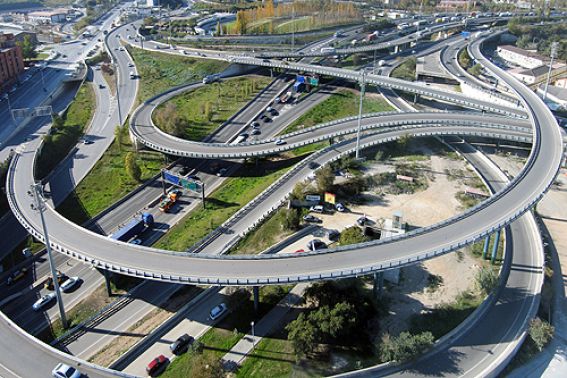
Gerard Llobet. Lecturer in Economics at the Centre for Monetary and Financial Studies (CEMFI).
Following the change of government in many municipalities, in recent months we have witnessed a renewed debate on whether public services such as rubbish collection, water, cleaning, public housing or management of municipal bicycles should be provided by private companies or by the council itself. This debate arises partly as in contrast to the trend in the last twenty years to outsource the construction and management of other services such as hospitals or some airports and generalise private management of motorways. Have we gone too far in this respect? Are there so many advantages of private management? This is an issue that I long have been hearing about, but always in particular cases. My goal today is to give a broader view based on academic literature.
In the examples I have given above, I have (intentionally) mixed two different models. In the case of outsourcing of new hospitals, as for example was done in Madrid, or in the case of motorways or airports, both the construction and the management of them was put out to tender. This model responds to the call for Public-Private Partnerships or public-private consortiums (PPPs). The concessionaire builds and operates infrastructure for an extended period of time (sometimes up to 50 years). Their income can come from three sources (which I discuss below): tolls such as motorways, the so-called called shadow tolls or fixed payments from administration. This model cohabits in Spain with many other cases where the administration directly or indirectly manages hospitals, motorways or airports.
In the case of services such as rubbish collection, the concessionaire company holds only a small investment and the important part is management. Tolls are rare and the cost is paid directly by the administration, sometimes with penalties and bonuses associated with service quality.
In a recent book, Engel, Fisher and Galetovic (2014) discuss the lessons we have learned as a result of the studies that have been done about the outsourcing of these services and in particular of PPPs, although many of its conclusions apply also to the management of any service. In the rest of the article I summarize some of the content and relate it to the Spanish case. In any case, I recommend those interested to read the book.
The advantages of PPPs are several. The main ones are the following:
? First, their greater flexibility in relation to governance and specialization of the company can contribute to greater efficiency. Secondly, linking the construction project with its exploitation allows companies to implement improvements during construction that are costly in the short term but that will simplify and cheapen management. Thirdly, linking the construction and operation means that if the bidding is done well, the company avoids getting involved in ruinous in projects (called white elephants). Fourthly, in signing a long-term contract with private enterprise, the administration is committed to that the necessary investments in infrastructure maintenance will be carried out. For example, this is in contrast to roads, public management which, in years of cuts, have been neglected and the cost of repair will keep on multiplying until the day comes when someone finally pays attention to them.
However, PPPs and private management in general also suffer from many problems that allow us to understand in what contexts they do not make sense;







